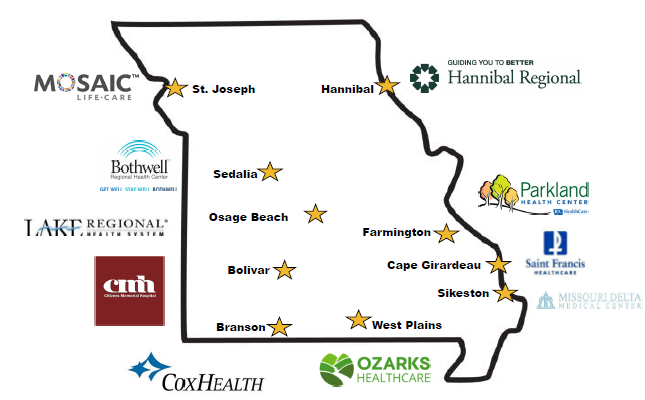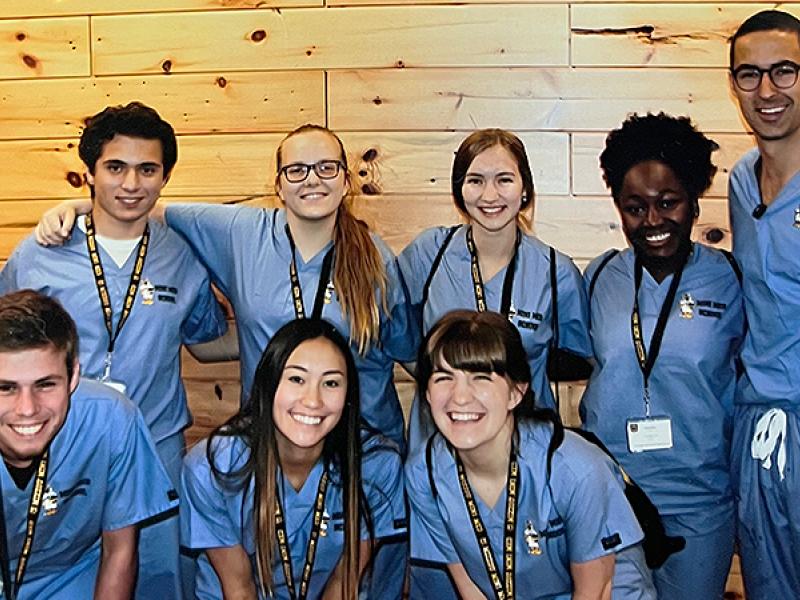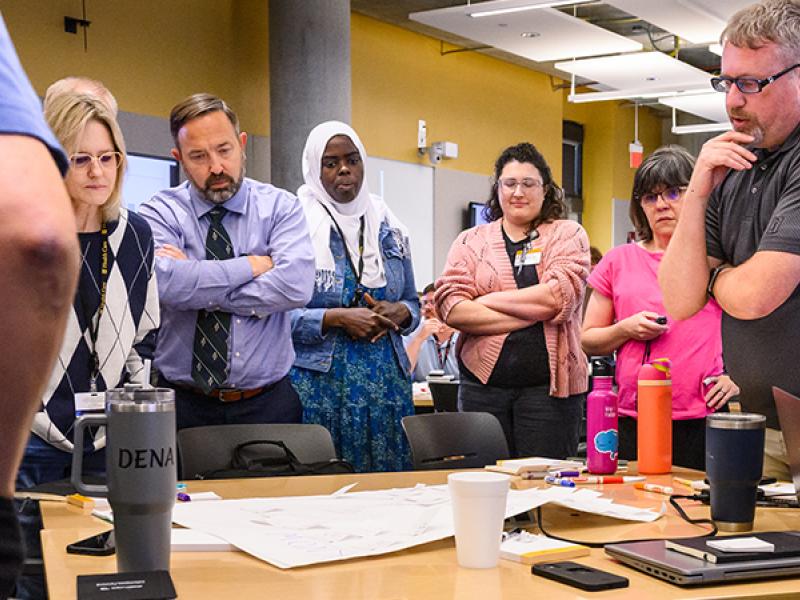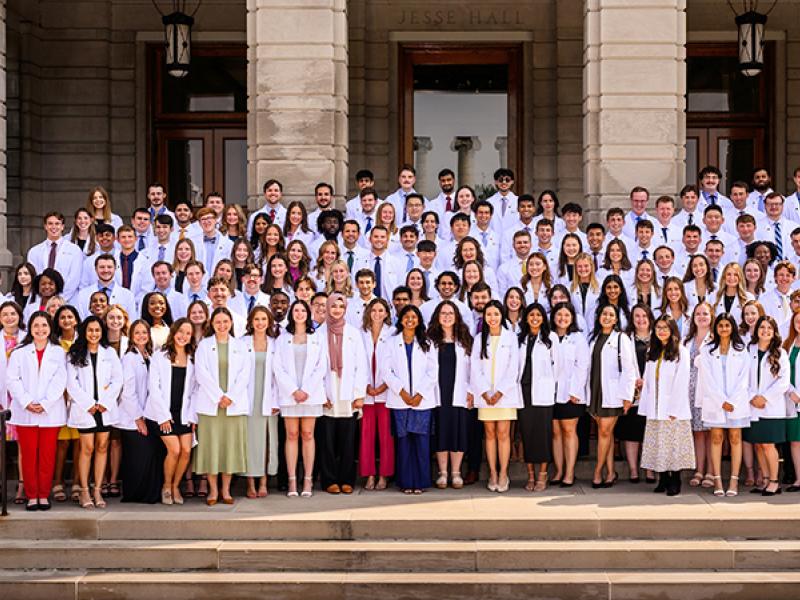The Rural Clerkship Program offers third-year medical students clinical education in community-based training sites throughout the state. Students are given the unique opportunity to live and work in one of these communities to gain personal experience of the rewards of rural practice.
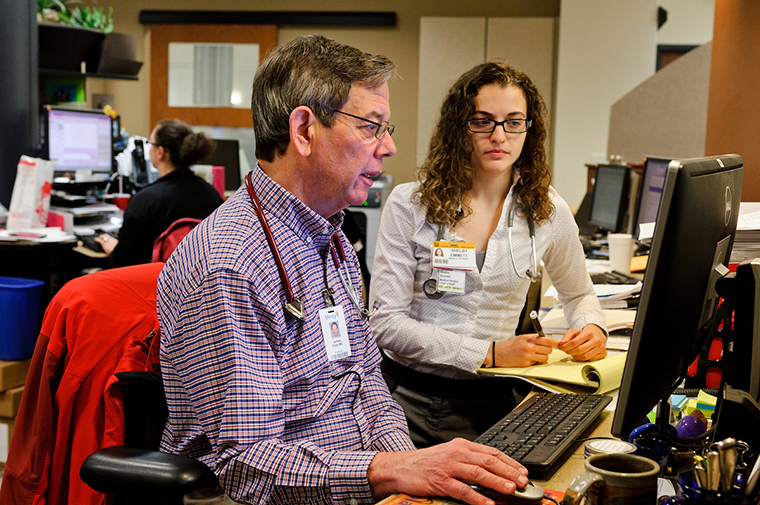
Rural Scholars are required to complete three clinical rotations at their continuity site or the longitudinal integrated clerkship (site dependent) and a community integration project during the third year of medical school. Although adjustments are made to the rural experience to reflect the program’s goals, the curriculum still addresses the discipline-specific objectives of the MU School of Medicine and is equivalent to those of other third-year students based in Columbia and Springfield. Community-based physicians serve as faculty and role models, guiding students through the program and serving as mentors for professional and personal development. In busy rural settings, students care for a large number of patients and are able to experience continuity of care.
Program Goals
- Explore and discover issues relevant to practicing medicine in a rural community
- Provide students with core clinical experiences by working with a qualified preceptor
- Afford students the unique opportunity to live and work in a rural community
- Provide opportunities for service learning through community integration activities
What Students Say
Rural Scholars are more likely to choose a primary care specialty and twice as likely to choose family medicine as their specialty when compared to non-participants. Some of the former program participants said the following about their experiences:
- “The Rural Scholars Program is about much more than learning medicine. Exposure to and interaction with the community are vital to understanding and treating your patients and getting the most out of your experience.”
- “An excellent experience for self-driven learners who want to have a more hands-on approach to medical learning.”
- "My time as a LINC student has thus far been AMAZING. I could not be happier to have this unique opportunity to learn in such a wonderful environment. One of the coolest experiences I have had during these first few weeks involved a case of appendicitis. I was able to see a patient admitted to the ED with abdominal pain, follow the work-up and imaging as they were done, and assist with the surgery in the OR to remove an angry appendix. This was all in the span of a few hours."
- “The rural program affords students unparalleled opportunities in medical education and community interaction. It is definitely a great investment in your education and your career and, of course, a lot of fun!”
- "Both the LINC and Rural Scholars played a huge part in my residency interviews. I was initially worried that being a Rural Scholar would deter huge academic programs from wanting to interview me, but it was the complete opposite. Everyone talked about how there was a need for rural general surgeons - and large academic programs want to put people who are interested in rural general surgery in their program because it shows they can graduate competent surgeons who don’t need to go to fellowship. All my interviews were consumed with people wanting to hear about the LINC experience. It made me stand out and made me unique - and during interviews really at the end of the day what you want is to be memorable in the huge crowd of qualified applicants. Me being a Rural Scholar and LINC participant did exactly that. "
Resources and Tools
Although students participating in the Rural Scholars Program may be miles away from their counterparts in Columbia or Springfield, they have access to the same educational tools. Rural Scholars coordinators check in with students on a regular basis to monitor their learning experience. Computer networks connect students to MU’s library resources, national databases, clerkship resources, and Canvas sites.
Evaluation and Grading
The process for student evaluation is similar to the process used at the School of Medicine. The assignment of grades and credit resides with the School of Medicine and the clinical departments.
Continuity Training Sites
Rural Scholars will complete the program at their assigned continuity site. Block clerkship locations include Osage Beach, West Plains, Branson, Bolivar, Cape Girardeau, Farmington, and Sikeston. Longitudinal Integrated Clerkship (LINC) sites include St. Joseph, Hannibal, and Sedalia. Co-ed furnished student housing is available to Rural Scholars at no charge, due to the generous support of the local health systems and the Missouri Area Health Education Centers. Students are responsible for reasonable household necessities while living in student housing.


